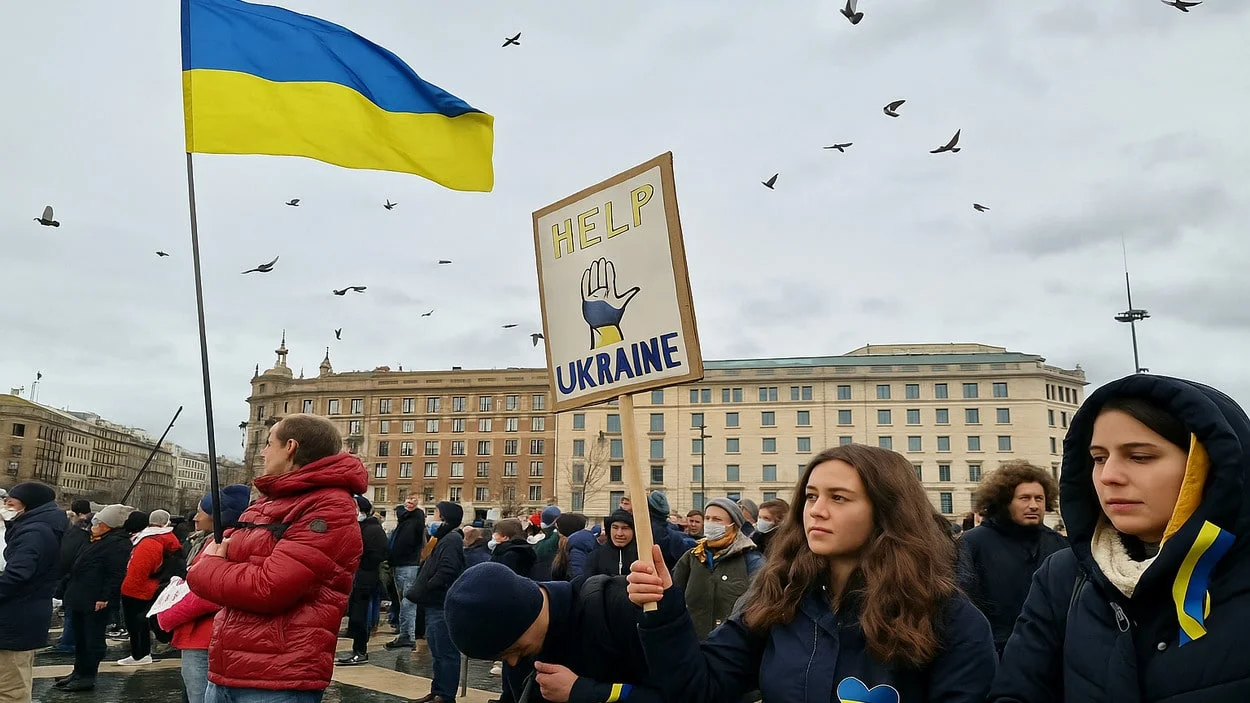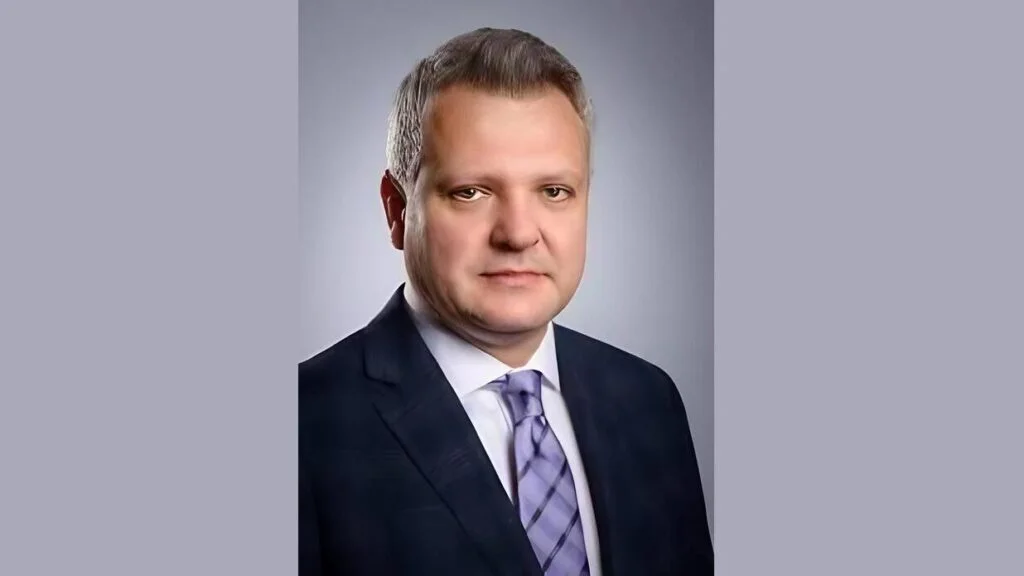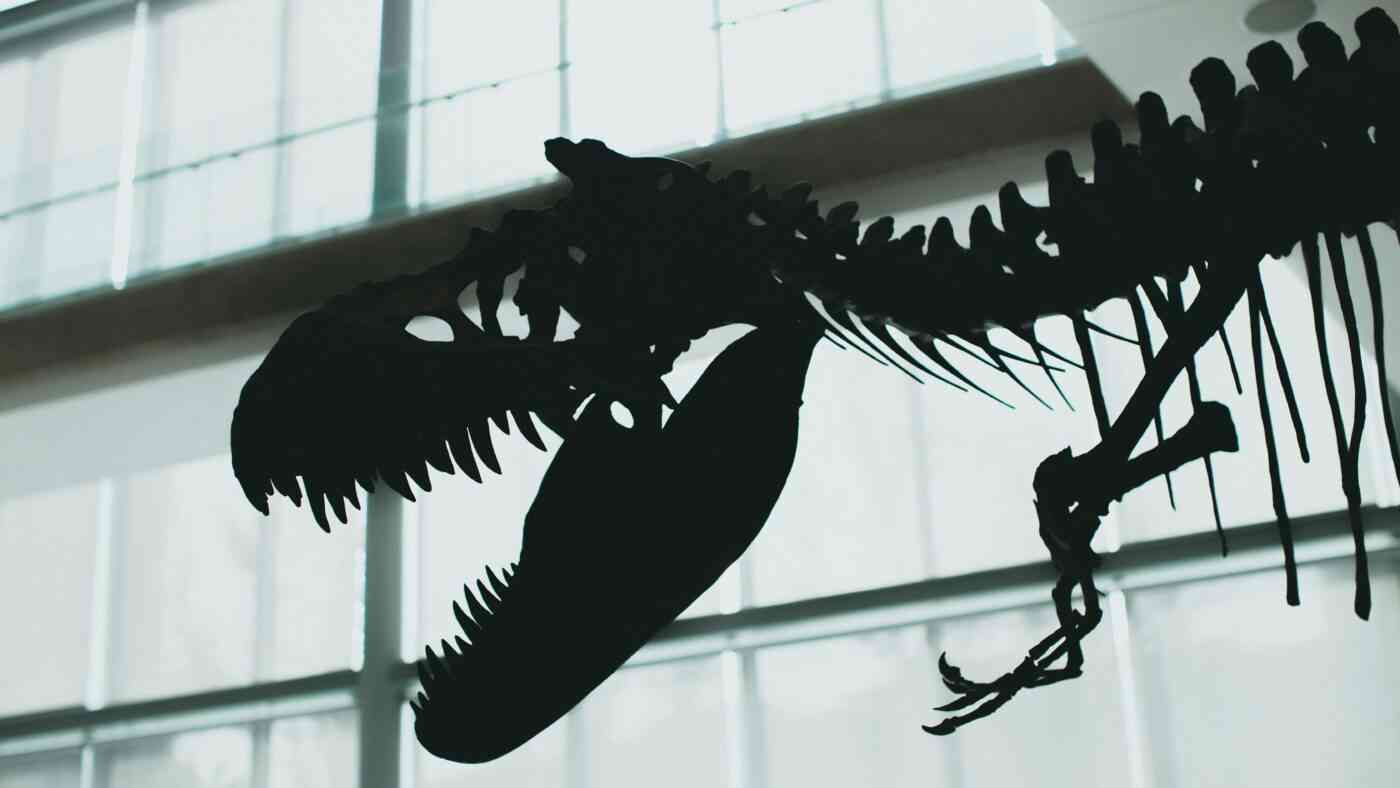Science
Ghost in the Stone: AI Uncovers Prehistoric Clues That Could Rewrite Bird Evolution
17 February 2026

For years, Poland stood as Ukraine’s staunchest ally — sheltering refugees, sending weapons, and rallying Western support. But now, a dark undercurrent of resentment is boiling over. “We helped, but we demand justice,” warns Dr. Robert Staniszewski, a leading political scientist at the University of Warsaw. “The Volhynia massacre can no longer be swept under the rug — not for another year, not another day.”
Anna Bobrowiecka: Since Russia invaded Ukraine three years ago, millions of Ukrainian refugees have come to Poland. We first greeted them with open arms. Our perception of Ukrainians, however, has begun to change gradually. How would we characterize the events of this entire period and the evolving Poland-Ukraine relations? Was it a downhill slope, a steady road with a few bumps, or a rollercoaster of highs and lows?
Dr. Robert Staniszewski: We surveyed Polish perceptions of Ukrainians for the first time in April 2022 and again in January. When examining all six data points, which are gathered every six months, a certain pattern becomes apparent: Over time, Polish perceptions of Ukrainians have worsened. It’s not that shocking. Research from the University of the Commission of National Education in Kraków, Jagiellonian University, and the Public Opinion Research Centre (CBOS) has shown similar results.
The share of Poles holding unfavorable views of their Ukrainian neighbors has risen. Yet our research reveals an unusual trend: Polish attitudes toward Ukrainians — especially regarding support for migrants — tend to improve every January. This pattern appeared consistently in 2023, 2024, and 2025. However, this goodwill typically begins fading by June. We believe this fluctuation is closely tied to the Christmas spirit, dubbing it the “Good Samaritan effect” — a time when people generally become more compassionate, generous, and willing to help. By contrast, data from April, May, and June show a clear decline in these positive sentiments.

If I had to pick one moment, it would be January 2023 — the peak of favorable Polish sentiments toward Ukrainians. Our research uses a scale ranging from -200 to +200, where positive values indicate favorable opinions and negative ones reflect unfavorable views. At that time, the index reached a high of +114 points. Yet, even then, it was clear that such strong support would not last forever.
Similar studies conducted in other nations, such as the Czech Republic, Slovakia, Germany, France, and even the United States, reveal the same trend: a general decline in popular support for refugees. With a current score of 65 on our scale, public opinion in Poland remains largely positive. However, this represents an almost 50% decline compared to the peak two years ago. In summary, the general trend in Poland-Ukraine relations is unmistakably negative, even if the majority of Poles still have generally positive opinions toward Ukrainians.
We have undoubtedly become more logical. Attitudes toward refugees and migrants should be distinguished since they are two distinct groups, and people react to them in different ways. Nevertheless, sentiments against both groups are deteriorating. In my opinion, public opinion toward Ukrainian migrants may ultimately fall somewhere in the center, neither distinctly favorable nor unfavorable. However, the situation is even more dire for migrants in general. I anticipate that those attitudes will keep getting worse.
Recommended: Farewell to Africa: How Russia is Replacing France
What Needs to Happen, and How Do Ukrainians Need to Change, for Polish Attitudes Toward Them to Improve?
Above all, as the study makes abundantly evident, Poles anticipate that Ukrainian immigrants will become more self-sufficient to obtain employment, file taxes, and participate in society. The notion of individuals “living off welfare” is strongly opposed. In the statistics, this sentiment is extremely evident.
With one significant exception — cash benefits like the 500+ child allowance — Poles were eager to provide almost any kind of aid at the beginning of the war, when refugees needed shelter and support the most. The public’s backing has drastically decreased today. The public healthcare system and Ukrainian children’s access to Polish schools are the two sectors that continue to enjoy widespread approval. Support for access to healthcare has been gradually eroding even since then.
It’s crucial to remember that we use open-ended questions in our polls to pinpoint both the positive and negative aspects of public opinion toward Ukrainians. We’ve seen that new issues that weren’t previously raised surface with every survey. Nevertheless, one key term repeatedly surfaces in these discussions: entitlement (or an entitled attitude). One of the most common accusations made against Ukrainians is this one. Poles’ views are dominated by the idea that they are entitled and think they should receive all advantages, particularly social ones. Many respondents believe that Ukrainians are trying to claim social assistance services, which has made them a controversial topic.
See also: Sharing is Caring. The Challenge of Being Kind
The perception that Ukrainians are not appreciative of the assistance they have received is a recurrent theme in the polls. In the long run, many Poles worry that Ukrainians will have more rights than they do. Arguments such as “We’re fighting for a free Poland too” particularly irritate respondents. When these remarks come from those living safely in Poland rather than fighting on the front lines, tensions rise.
Moreover, certain Ukrainian behaviors seem to particularly frustrate Poles, and these issues are unlikely to resolve themselves without intervention. A post-Soviet, uniquely Eastern mindset and culture, various traditions, and historical concerns. This is especially true regarding Ukraine’s ongoing veneration of Bandera and the unhealed wounds of the Volhynia massacres — historical tensions that continue to strain Poland – Ukraine relations. These issues are among the most frequently cited causes in surveys. These all have a significant influence on Poland’s present stance toward Ukrainians.
We Know Exactly What It Is About Ukrainian Actions and Behaviors That Poles Dislike. But Should We Acknowledge Their Efforts and Skills as Well, for improve Poland-Ukraine Relations?
Even when we find the positives, or what we refer to as “opportunities,” in our surveys, they still far exceed the negatives. This explains why, despite the above-described problems, the general perception of Ukrainians is still mostly positive. Our excitement was mostly motivated by a desire to assist and a sense of compassion during the early days of Russia’s invasion of Ukraine, when we were accepting refugees. It was a normal human reaction.
Ukrainians’ diligence and capacity to cover labor shortages are the biggest assets and opportunities they provide. This statement has been a recurring theme in our surveys since the beginning of the war, and it holds for both migrants and refugees. We Poles would want Ukrainians to occupy positions that we are not as keen to do. Positive macroeconomic factors are also mentioned by respondents, such as the general economic boost and the taxes paid by Ukrainian workers to the national budget.
How far can we, Poles, keep ‘ordinary’ Ukrainians apart from Ukrainian politicians and elites? Are we not increasingly viewing Ukrainian refugees and migrants through the lens of the frequently startling actions and words of individuals such as President Zelensky?
We examined the variables affecting the shifting perspective of Ukrainians in our study. According to Polish respondents, the impact of the media, especially television, is undoubtedly the most important component. Until 2023, two TV stations, TVN and Telewizja Polska, were significant; however, now it is predominantly TVN since the change of administration. Poles also evaluate the words and actions of Ukrainian leaders through the lens of television broadcasts, with TVN continuing to be the primary source of information. Most Poles harbor a negative opinion of the actions of the Kyiv authorities, citing a sense of entitlement and, as previously noted, a perceived lack of appreciation for the assistance received.
These critiques also stem from personal and direct interactions between Poles and Ukrainians. A distinct illustration of this is seen among young Polish women, typically under 29, holding no more than a high school diploma, who view Ukrainians significantly more unfavorably than the wider Polish community. They harbor strong resentment towards young Ukrainian women, seeing them as rivals in both employment and dating. We term this phenomenon the ‘beauty salon effect’ – referring to research findings that identify beauty salons as the primary site of interpersonal conflicts between young Polish and Ukrainian women. This dynamic reveals the complex intersection of gendered social spaces, economic competition, and cross-cultural perceptions.
It is important to note that the internet plays a considerably lesser role in shaping these viewpoints. The key factors include television, the remarks and behavior of Ukrainian officials, and face-to-face interactions affecting Poland-Ukraine relations.
Read more: The Adaptive Power of Humor: How Laughter Helps You Survive Tough Times
What is the perspective of poles on the future in this context? Would they prefer that the majority of Ukrainians return to their homeland after the war, or allow them to remain in Poland — only if their behaviors change? How do we envision our continued coexistence?
The study indicates that most Poles (approximately 60%) are open to a temporary residence for Ukrainians and wish for their return to Ukraine once the war ends, if feasible. Conversely, about 29% of Poles are receptive to permanent residency, which may involve settling down, securing long-term jobs, and establishing families. Consequently, the outlook for the future is largely clear: Poles desire Ukrainians to be prepared to return to their homeland, particularly if they cannot find lasting employment in Poland.
Beyond the question of whether Ukrainians should stay or pursue their lives here, there is undoubtedly an expectation of gratitude for the assistance provided to Ukraine. The majority of survey participants express this hope. Certainly, it’s not about continuous public gratitude, but rather a simple acknowledgment of the kindness shown by Poles, especially from Ukrainian officials. What is most needed in this context is recognition from the President of Ukraine, Volodymyr Zelensky.
Polish respondents clearly express their unwillingness to continue being the recipients of Ukrainian demands and perceived entitlements. They also desire a reduction in Ukrainian communication and greater efforts from Ukrainians to learn the Polish language. The surveys indicate that Ukrainians often demand to converse in their language, which is becoming increasingly irritating to Polish citizens.
The topic of the Volhynian Massacre continues to resurface like a boomerang. This tragedy profoundly affects Polish-Ukrainian relations. We are facing considerable chaos, not only regarding honoring the victims, recovering remains, or pursuing reparations, but also in terms of how to confront the atrocity itself. Ukrainian officials refrain from discussing it, providing no apology or accepting clear accountability. Is it possible to address this issue today in a manner that prevents escalating emotions and resentment?
The responsibility to tackle this matter now rests with Ukraine, not Poland. Regrettably, Ukrainian officials — led by President Volodymyr Zelensky — are downplaying its significance. This occurs for quite clear reasons, such as concerns over public image. The exhumation of victims’ remains, many of whom were children and women, would severely damage the global perception of Ukraine and its historical narrative.
It’s unlikely Kyiv will allow this to happen.
We should emphasize that historical issues hardly emerged in surveys about Polish views on Ukrainians until June of last year. Poles only started paying greater attention to the matter of Volhynia after mainstream politicians (for instance, the current Minister of Defense, Władysław Kosiniak-Kamysz) began addressing it more frequently. More than 90% of our participants today report familiarity with the term “Volhynian Massacre.” Furthermore, when we asked if the exhumation of the victims’ remains is significant and should begin immediately (instead of at an unspecified future time, as suggested by, for example, Prime Minister Donald Tusk), approximately 65% of Polish participants responded positively.
This indicates that the issue of commemorating and confronting the Volhynian Massacre is of greater importance to Polish citizens now than it was a year or two ago. It also shows that we do not wish to delay addressing it for several more years. Furthermore, 70% of Poles maintain that national interests should take precedence in dealings with Ukraine. These are clear indications to the Polish government — Poles feel they should press the Ukrainian authorities more regarding this issue.
Translated, edited, and compiled from the Polish version by Joanna Sarata
Science
17 February 2026

Science
17 February 2026


Zmień tryb na ciemny